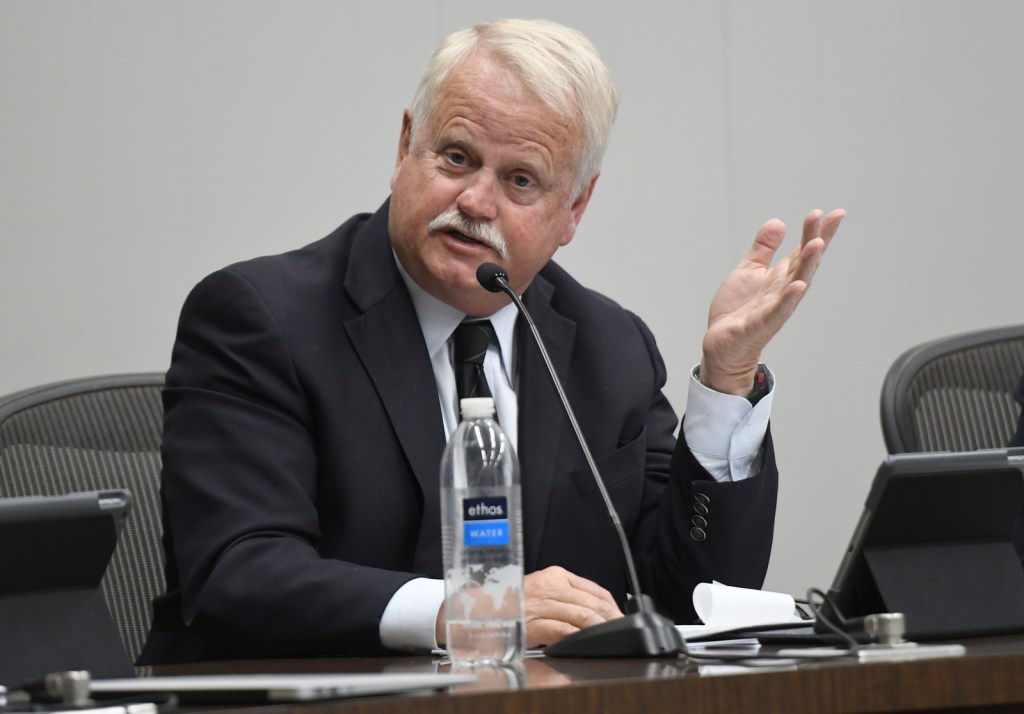In hopes of encouraging more downtown restaurants to put more tables and chairs on city sidewalks, a subcommittee of the City Council voted on Tuesday to stop charging businesses rent for the privilege of so doing. In terms of actual dollars and cents involved, it was a small token gesture, but according to Councilmember Randy Rowse, a small token gesture in the right direction. “I see this as a very positive move,” said Rowse.
When City Hall started renting out sidewalk space to restaurant owners back in 1993, Rowse said he thought it was a bad idea. But with downtown struggling with empty storefronts and the ghost-town dread they induce, Rowse said his tune has changed. Currently, about 41 restaurants now rent sidewalk space from City Hall. Cumulatively, they pay $76,000 a year in rent. Given City Hall’s relatively flush circumstances, that’s $76,000 city bean counters figure they can do without if it helps send the right message.
Carrie Kelly, executive of Downtown Santa Barbara, praised the move, saying it will help create “a space where people want to be.” Taking the other position, Anna Marie Gott, City Hall’s most persistent and disapproving watchdog, argued it constituted a “giveaway” of the public right-of-way to private businesses. She warned that the move would encourage wine bars to take advantage of the sidewalk patio space and that their patrons would smoke. “Maybe we have too much smoking,” Gott warned. “Maybe we have too many wine bars.” (Smoking is allowed downtown only in bar patios and only after 10 p.m.) Instead of wine bars, Gott urged the council’s Ordinance Committee to focus on creating “a family friendly” ambience that would draw more families.
She also lamented the silent disappearance of more than 60 city benches from downtown. “There’s no place for people to sit,” she stated. Those benches were removed because they offered a perch for homeless people. If the sidewalks are opened up for dining, Gott suggested, there would not be room enough for the benches if they should ever make a return.
Lastly, Gott intimated the existence of a conflict of interest because a high-ranking city traffic planner has an ownership stake in a restaurant downtown that will benefit by the elimination of the rent. If City Hall wanted to encourage outdoor dining, it should eliminate rent for only one year. While Gott drummed up a large number of like-minded and outraged emails and letters, only one other speaker — Steve Hausz of the city’s Architectural Board of Review — showed up to express himself.
In recent years, City Hall has participated in numerous public discussions about revitalizing State Street. High on everybody’s list of “low-hanging fruit” is the idea of encouraging more outdoor dining. As much as Rowse, who owns a bar and restaurant, supported the change, he doubted the rent breaks would make that big a difference. City Hall will still charge all participants $250 a year, and they will still have to go through the regular city approval process. The matter will now be referred to the City Council as a whole.

